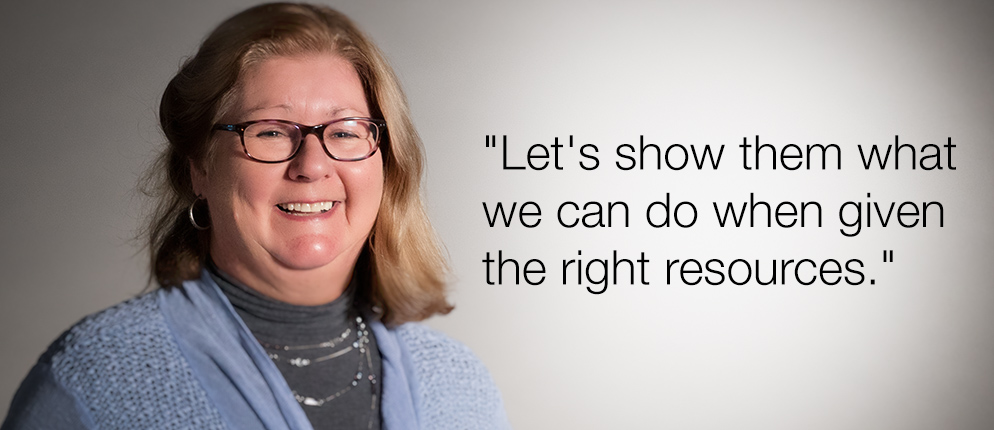- Future Students
- Current Students
- Faculty
- Staff
- Alumni
- Others
New research asks whether how we live affects how we age
 In a new apartment building, just a few minutes north of Toronto, an experiment is taking place. From the outside, the building has a strikingly modern design: tall glass windows and steel let in ample natural light, but it’s what’s going on inside that’s remarkable.
In a new apartment building, just a few minutes north of Toronto, an experiment is taking place. From the outside, the building has a strikingly modern design: tall glass windows and steel let in ample natural light, but it’s what’s going on inside that’s remarkable.
It’s called the Reena Community Residence, and is home to more than 70 adults with special needs related to physical, mental or developmental health. Residents live in independent apartments, have 24-hour access to care and services and enjoy daily programming put on by building staff. They take care of their own food and laundry, and for many of them, it’s their first time living on their own.
The building is an experiment. After years of fundraising and planning, it opened in 2012, and since then has been a trial run for a new model of living and service provision. With support from the University of Guelph-Humbe'sr Research Grant Fund, Dr. Brenda Elias, who teaches Gerontology in the Family and Community Social Services department, is tasked with determining whether the concept works.
“The residence building requires constant cooperation between the Reena foundation and the different service providers involved,” she says. “We’re working with the residents to measure how this living arrangement has affected their perception of their health, well-being and social participation.”
To achieve that end, Dr. Elias has been working on a 5-year longitudinal study, interviewing the residents of the Reena building about their lives, before and after the move. Using both qualitative and quantitative measures, the study first met with residents while the building was under construction, then a few months after moving in, and have followed up each year since. Now four years into the study and data collection, Dr. Elias recently had findings from the study’s first two years published in the Journal of Housing for the Elderly.
Residents in Reena are all at different stages of aging, ranging from their early 20s up to their 80s. For all of them, Dr. Elias is trying to measure the eclectic set of factors that contribute to “aging successfully.” Doing so means tracking their physical health, social participation, happiness, as well as how frequently they make emergency hospital visits.
Dr. Elias says that the results so far paint a very positive picture. Rather than providing substandard housing and inadequate care, as has sometimes been the case in the past, Reena gives their residents modern facilities in good repair and encourages them to interact with one another constantly.
“We said, let’s show them what we can do when given the right resources,” Dr. Elias says.
Rec rooms, exercise space and classes for skills building are joined by gardens, a greenhouse, and a room for karaoke (a tenant favourite). It’s led to many of Reena’s residents getting jobs at nearby businesses, like the movie theatre, department store and supermarket, and recently, they created a tenants’ council to arbitrate building issues. Those resources have led to increased resident happiness, a boost to social inclusion, have led to fewer visits to the emergency room, and it’s even saved money in the process.
Interviewing the more than 60 people involved in the Reena research study required team collaboration, and Annelise Callisto, who graduated from FCSS at UofGH in 2015, took part in the project as a research assistant. Annelise was tasked with interviewing tenants, learning about their perceptions of their new home, and transcribing the results.
“I’ve always been interested in research, so when the opportunity came up, I thought it was great,” she says. “It’s important work too, because the data we gather can influence policy, funding, programs — it can shape the future.”
Now a graduate student pursuing her Master of Social Work degree, Annelise says taking part in the Reena research gave her better insight into the aging process.
“Aging is a lifelong process that starts from birth and ends with death,” she says. “There are so many nodal events along the way that affect your aging, and this study lets us see the health impacts of that. We’re seeing the social determinants of health at work.”
Learn more about research at UofGH.

